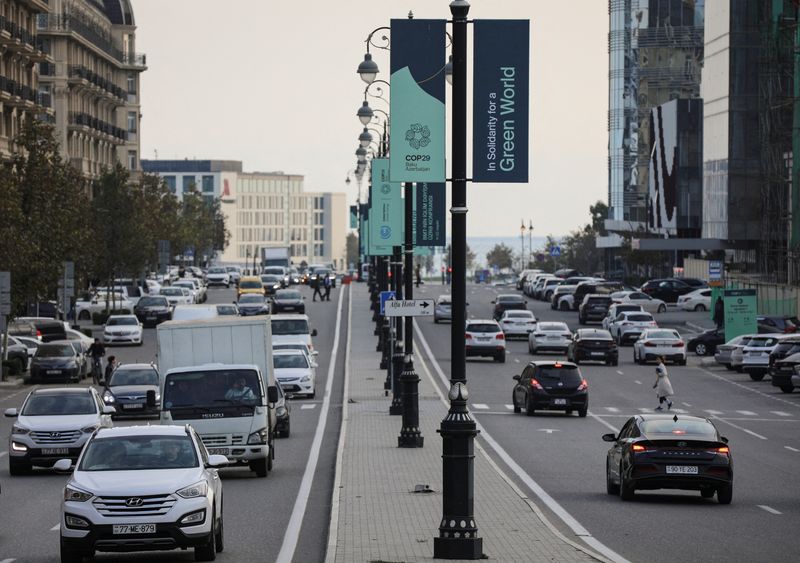COP29 climate agenda clouded by trade tensions ahead of summit
2024.11.08 10:06
By Kate Abnett and Tim Cocks
BRUSSELS/JOHANNSEBURG (Reuters) – China has put trade talks onto the proposed agenda for the COP29 summit, a U.N. document showed, raising the prospect that the issue could disrupt the start of global climate talks.
The draft agenda for this year’s climate summit, published on Friday, includes a Chinese proposal, previously reported by Reuters, for talks on carbon border taxes and other “restrictive trade measures” that Beijing says hurt developing countries.
Delegates at the conference must adopt the summit agenda by consensus as their first task when the COP29 talks begin on Nov. 11 in Baku, Azerbaijan.
But some diplomats said the European Union is likely to oppose the Chinese proposal.
Failure to approve the agenda could delay the start of negotiations – cutting into the time left for the main task of approving potentially hundreds of billions of dollars in new funding to address climate change.
China submitted the trade talks proposal on behalf of the BASIC group, which also includes Brazil, India and South Africa.
“We will speak about it, relentlessly,” South Africa’s Environment Minister Dion George told Reuters.
George said BASIC countries believe the U.N. talks is the appropriate forum in which to discuss climate-related trade policies, including the EU’s carbon border levy.
BASIC countries have been strong critics of the EU carbon border policy, which from 2026 will impose fees on imports of high-carbon goods, including steel and cement.
“We are displeased about it and we don’t think it’s good for our economy,” George said, adding that South Africa and China are having “intense conversations” with the EU.
A European Commission spokesperson declined to comment.
The EU has previously said disputes over trade should be addressed at the World Trade Organization.
One European negotiator told Reuters that it had “always been a no-go” to discuss trade measures such as carbon border levies at U.N. climate summits.

The negotiator expressed concern that the BASIC proposal was intended to prevent discussions at COP29 on cutting CO2 emissions and finance from moving forward.
A fight over the agenda at a round of U.N. climate negotiations in 2023 did not get resolved for more than a week, effectively killing off progress at the talks.








